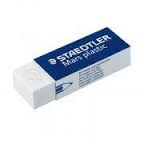记忆方法
为了记忆单词“efface”,可以将其分解为“ef-face”。想象你用“ef”的手指轻轻擦拭掉(face,脸),从而使脸变得无影无踪,这样就记住了“efface”意为“抹去、消除”。
以上内容由AI生成, 仅供参考和借鉴
中文词源
efface 抹去
ef-, 向外,同ex-. face, 脸,表面。
英语词源
- efface (v.)
- "to erase or obliterate," especially something written or carved, late 15c., from Middle French effacer, from Old French esfacier (12c.) "to wipe out, destroy," literally "to remove the face," from es- "out" (see ex-) + face "appearance," from Latin facies "face" (see face (n.)). Related: Effaced; effacing. Compare deface.
权威例句
- 1. It takes many years to efface the unpleasant memories of a war.
- 许多年后才能冲淡战争的不愉快记忆.
- 2. The lapse of year will never efface that scene of ruins from my memory.
- 时光的流逝绝不会把那废墟的景象从我的记忆中冲淡.
- 3. He could not efface the impression from his mind.
- 他不能把这个印象从心中抹去.
- 4. He would have to efface himself before his visitors.
- 他每每只好在客人面前躲而避之.
- 5. Time would efface the memory.
- 时间将会抹去记忆.
